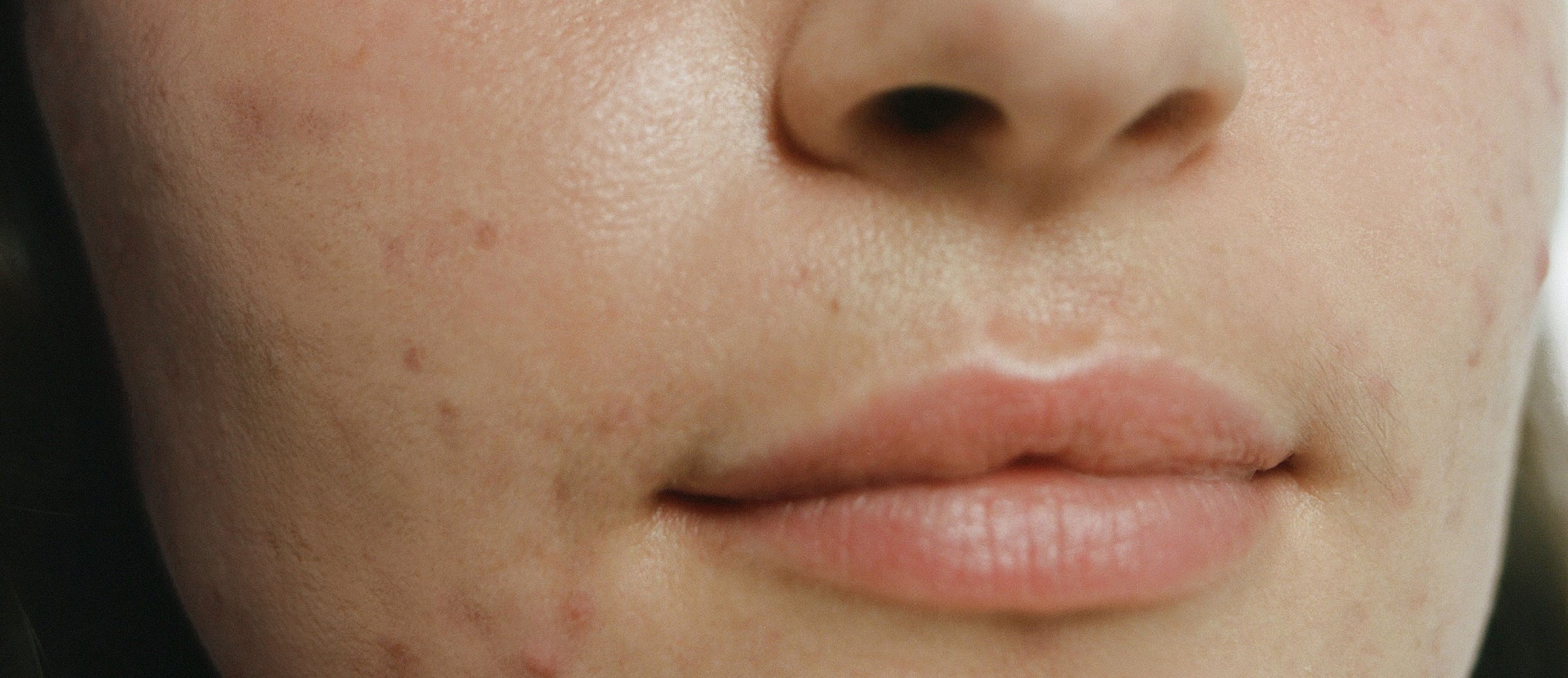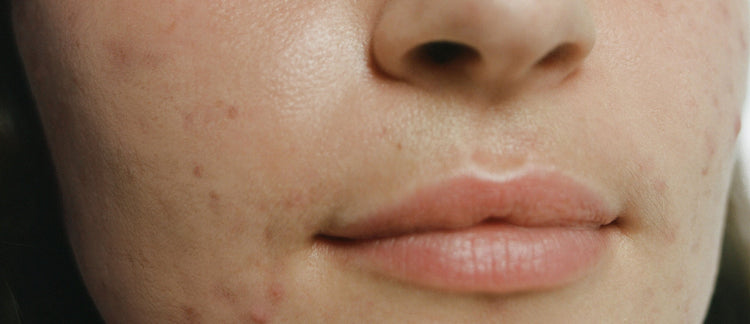Are Acne Scars Permanent?
Hint: we have good news.


If you have acne, you know you’re not alone. The American Academy of Dermatology states around 50 million people in the USA experience acne breakouts every year. The aftermath of these breakouts: acne scars. They can show up in the form of small indentations, mottled texture, or redness on the skin, lingering on for longer than we’d like them to. The big question is, are acne scars permanent? Here’s everything you need to know.
How are Acne Scars Formed?
Let’s start with how acne makes an (unwelcome) appearance first. Acne is an inflammatory disorder of the skin, and breakouts occur when a follicle or pore gets blocked by excess oil, bacteria or dead skin cells. When this happens, the pore swells up and the follicle’s walls break down resulting in acne scars.
If the follicle walls break near the surface of the skin, it’s a minor wound that can usually heal quickly without leaving a mark behind. However, the larger and deeper the inflamed pore, the more serious the legion. This is because the infected parts spread into the surrounding dermis and infect the healthy skin tissue around it.
To repair the damage, skin produces new collagen (the protein that gives skin its elasticity). But just like patching up an old pair of jeans, the new “fabric” doesn’t quite match the original. The same goes for your skin, leaving acne scars and uneven texture behind.
What are the Different Types of Acne Scars?
Keloid or Hypertrophic Acne Scars
After a breakout, your skin can overcompensate by producing too much collagen to repair the area. This leads to tissue on the surface of the skin that gives a raised and uneven appearance to the former blemish.
Atrophic Acne Scars
Atrophic scars are the opposite, and occur when the skin is unable to regenerate tissue, so the blemish will heal underneath the normal layer of skin. The 3 main types include: “ice pick scars”, which appear like small, deep holes in the skin, “boxcar scars”, which are usually a round or oval shape (similar to chickenpox scars), and “rolling scars” caused by scar tissue under the skin that gives an uneven appearance on the surface.
How to Treat Acne Scars
Acne scars aren’t necessarily permanent, and there are ways to improve their appearance. Rule #1: never pick or squeeze at breakouts, this makes them worse. Scroll for more solutions.
Retinol
Retinol is a derivative of vitamin A, an essential vitamin for healthy skin. Its job is to stimulate fibroblasts, the cells that produce collagen and tissue at the deepest layer of your skin, keeping it firm and elastic. By doing this, it encourages skin cell turnover, eventually smoothing the uneven texture of acne scars over time. If your skin feels too sensitised after topical retinol application, try SKIN FILTER as an ingestible alternative. Formulated with beta carotene, which the body converts to vitamin A, it has all the benefits of retinol but without the associated irritation and dryness. Improving the appearance of long-term acne scars while also preventing further breakouts.
AHAs
AHAs stands for alpha hydroxy acids, a group of acids often used in skincare formulas for their exfoliating benefits. Don’t let the word “acid” put you off. These chemical exfoliants are more gentle than the physical exfoliators you may have used before (i.e. the gritty face scrubs of our teens). Instead of scrubbing away at dead skin cells like a wire scourer and causing microscopic tears on the skin, AHAs “unglue” dead skin cells from the surface, lifting them away without irritation. Our serum-like topical supplement THE PILL is formulated with 6 AHAs including glycolic acid, heroed for its skin-resurfacing properties. It’s clinically proven to increase cell renewal by 24%*, smoothing skin texture and reducing red acne scars and dark marks over time.
*In an independent study.
Vitamin C
Vitamin C has long been popular in brightening skin care formulas, but it has so many more uses than just giving your complexion a glow. It’s also a powerful antioxidant that increases cell turnover to regenerate skin. By removing dulling dead cells on the surface, skin texture is improved and areas with uneven tone and hyperpigmentation appear more balanced. Vitamin C also encourages collagen production, repairing damaged skin and boosting elasticity, making this a good all-rounder to improve acne scars. Vitamin C is notoriously hard to stabilise in skincare formulas, so we created TOPICAL-C in a powdered form to keep its potency. It’s formulated with 10% ascorbic acid (aka vitamin C), the optimal amount for synthesis and absorption. Just mix with moisturiser to activate.
Lasers, Microneedling or Chemical Peels
For more severe scarring, a trip to the dermatologist is advised. Depending on the severity, your dermatologist will recommend the right treatment for your type of acne scars. Here are some of the courses that could help.
- A series of chemical peels will remove the outer layers of the skin, reducing the surface appearance and allowing the unscarred skin below to come to the surface. This gives a smoother, more even appearance with continued treatment.
- Ablative laser treatment removes thin layers of skin to encourage new cells to grow and smooth over the surface. Non-ablative laser treatment stimulates collagen growth and tightens underlying skin.
- Microneedling is the process where tiny needles on a roller glide over the skin, breaking the surface and excess collagen around acne scars in the top layer of the dermis. This stimulates the skin’s repair process, so it produces new collagen to smooth over the uneven surface and reduces the appearance of acne scars.
As always, if you’re not sure which route to take, speak to a dermatologist to discuss the best treatment course for your skin.
Looking to learn more about your skin? Tap to read all about why your skin microbiome is just as important as your gut microbiome in Immunity on the Surface.

